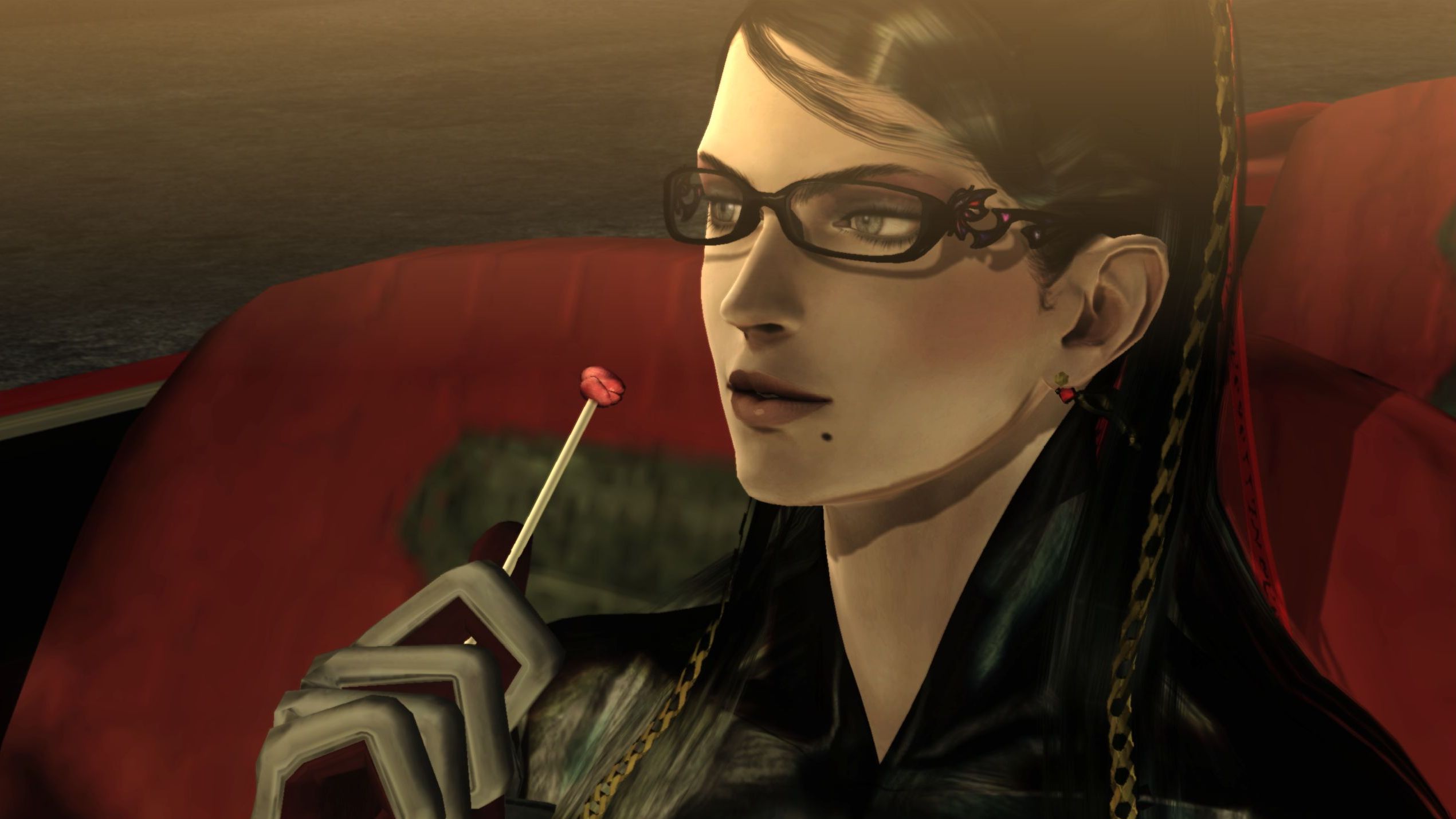Hideki Kamiya breaks out the tiny violin for the 9 Bayonetta games he once imagined: 'I may have to take the full saga to the grave'

Hideki Kamiya, formerly of Capcom and PlatinumGames, is now out in the world as a civilian. The legendary director is responsible for some of the best action games ever made, in particular Bayonetta, but following his departure from Platinum earlier this year (a company he co-founded) it doesn't seem like he's going to be involved much in games anymore.
Hopefully I'm wrong, but at the moment Kamiya seems content to make YouTube videos showing off his ludicrous car and talking about his love of aquariums. In the latest he addresses some audience questions about his games and, when asked about Bayonetta, the violins really start playing.
"I worked on Bayonetta 1, 2, 3 and Origins," Kamiya said. "I've talked about this in various interviews: that the Bayonetta series would consist of a total of nine episodes, and that I wanted to grow the franchise as the Bayonetta 'Saga', but it seems like I may have to take the full saga to the grave with me."
Kamiya directed the first entry in the series, before stepping back into supervisory roles as he worked on, among other things, the ill-fated Scalebound.
"It's a shame," says Kamiya of leaving the series behind at PlatinumGames. "It's not like I own the Bayonetta IP, but I suppose those who do will probably keep it going."
Elsewhere in the video Kamiya clarified his involvement in the Bayonetta series generally, saying "people got the mistaken impression that I wasn't involved with Bayonetta 3, but I was indeed deeply involved. I was the director on Bayonetta [and on the sequels] stepped back into more of a supervisory role, but I still handled things like the story and character settings to keep the Bayonetta universe consistent."
Perhaps the most amusing bit of the video, which covers a range of topics, is when Kamiya gets into his personal philosophy of blocking. To set the scene a little Kamiya was once infamous on social media for blocking users who asked seemingly anodyne questions, often quote-tweeting the unfortunate user with "BLOCKED" or some variant thereof, and directing others to his Twilog page (which displays an individual user's tweets in a more readable bloglike format).
The biggest gaming news, reviews and hardware deals
Keep up to date with the most important stories and the best deals, as picked by the PC Gamer team.
It could be brutal: yours truly was a committed Kamiya follower for years, before what I thought was an innocuous reply to one of his tweets saw my ass sent to Blocked Penitentiary.
"Ah, 'BLOCKED!'" says Kamiya of this era. "I think many people misunderstand how my blocks work, but there's an actual method to what I do."
Kamiya admits he used to "block people who tweeted me in languages other than Japanese" but the reason was that their collectively "energetic" approach to questioning him left him with a "personal impression that a lot of people don't really look at what I tweet." Instead they "just tweet at me with things they want to ask or thoughts they have."
I mean, welcome to Twitter? But the philosopher king is not done, saying he'd get the same questions over and over. So he came up with a test, and pinned "I'll block you if you tweet at me in anything other than Japanese" (in English) at the top of his timeline.
Therefore "I could tell that people tweeting at me anyway weren't reading my timeline, so I decided to block those people automatically. That's the logic. People say 'that's racist' or 'that's discrimination,' but that's not true. That was a test to see whether they read any of my comments. That was the whole process."
So there you go. I'm not sure how fully automated the whole thing was, as it always felt like Kamiya was doing it himself: but he certainly seems to have calmed down these days.
"Lately blocking people is a pain in the ass…" muses Kamiya. "Pain in the ass? Maybe I'm starting to feel a bit sorry? Some small pangs of guilt… So I've stopped blocking people so much these days.
"But who knows? I might change my mind at any minute. Depends on how I feel."

Rich is a games journalist with 15 years' experience, beginning his career on Edge magazine before working for a wide range of outlets, including Ars Technica, Eurogamer, GamesRadar+, Gamespot, the Guardian, IGN, the New Statesman, Polygon, and Vice. He was the editor of Kotaku UK, the UK arm of Kotaku, for three years before joining PC Gamer. He is the author of a Brief History of Video Games, a full history of the medium, which the Midwest Book Review described as "[a] must-read for serious minded game historians and curious video game connoisseurs alike."

